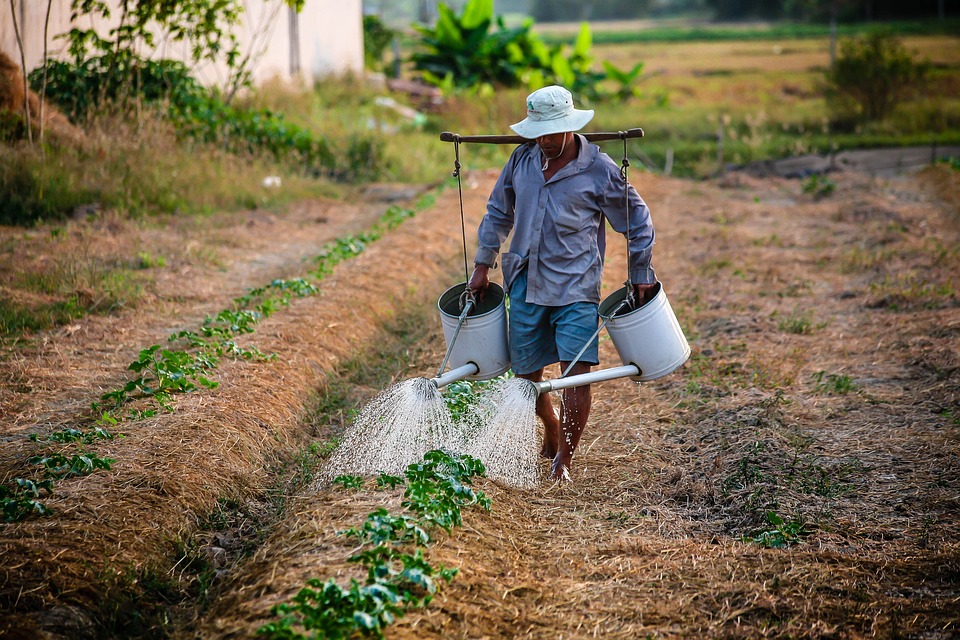Accelerating inclusive Farmer-led Irrigation development: reaching scale sustainably

Farmer-led irrigation development (FLI) has gained increased attention by government institutions, development and implementation partners as one of the potential solutions to build climate resilience for smallholder farmers and transform food systems to support healthy diets for all. Furthermore, the knock-on effects of health-related disasters such as the COVID-19 pandemic on market disruptions impacting food and nutrition security, enforces the urgency to increase multiple purpose water access and increase local community resilience.
This webinar raises the question of how accelerating FLI development can be sustainable and inclusive. How do we ensure water security whilst supporting agricultural economic development? What are the incentives across actors within food systems to support sustainable use of water resources? How do we ensure that water access remains equitable to all water users? What is the role of institutions and regulations to safeguard and stimulate water stewardship?
The International Water Management Institute (IWMI) together with the World Bank, The Daugherty Water for Food Global Institute and the Global Water Partnership (GWP) are hosting a virtual mini-series to discuss key issues and identify a way forward for operationalizing sustainable and inclusive scaling of farmer-led irrigation development. The webinar series is geared towards practitioners, policy makers, private sector and researchers interested in further advancing FLI globally and overcoming the often observed systemic barriers in reaching scale.
Petra Schmitter
Research Group Leader – Sustainable and Resilient Food Production Systems, International Water Management Institute (IWMI)
Shilp Verma
Researcher, Water-Energy-Food Policies, International Water Management Institute (IWMI-TATA)
Claudia Ringler
Deputy Director, Environment and Production Technology Division, International Food Policy Research Institute (IFPRI)
Claudia Ringler was appointed Deputy Division Director of IFPRI’s Environment and Production Technology Division in 2011. From 1996 until her current appointment, she served in various other research positions in that division. She currently co-leads the Institute’s water research program and is also a basin theme leader in the CGIAR Research Program on Water, Land and Ecosystems
Dr. Ringler received her PhD in Agricultural Economics from the Center for Development Research, Bonn University, Germany, and her MA in International and Development Economics from Yale University. Her research interests are water resources management-in particular, river basin modeling for policy analysis and agricultural; and natural resource policy focused at sustainable agricultural productivity growth. Over the last several years she has also undertaken research on the impacts of global warming for developing country agriculture and on appropriate adaptation and mitigation options. Dr. Ringler has field experience across Asia, Sub-Saharan Africa and Latin America. In Asia, she has worked on natural resource management and agricultural technology policy in Bangladesh, Cambodia, China (Yellow River Basin), India, Indonesia, Laos, Pakistan and Vietnam (Dong Nai and Mekong River Basins). In sub-Saharan Africa, she has worked mainly in Ethiopia, Ghana, Kenya and South Africa and on the Limpopo, Nile and Volta River Basins; and in Latin America on Chile (Maipo River Basin) and Brazil (Pirapama Basin). Ringler has been part of a series of Project and Program Advisory and Steering Committees; and International Assessments, such as the Millennium Ecosystem Assessment, the International Assessment of Agricultural Science and Technology for Development, and the UNEP-led GEO-V Assessment. She is currently a member of the Scientific Steering Committee of the Global Water Systems Project (GWSP). Dr. Ringler has more than 80 publications in the areas of water management, global food and water security, natural resource constraints to global food production, and on synergies of climate change adaptation and mitigation.
Barbara Van Koppen
Principal Researcher on Poverty, Gender and Water at the International Water Management Institute
Peter Repinski
Chief Operations Officer (COO) and Deputy Executive Secretary, Global Water Partnership (GWP)